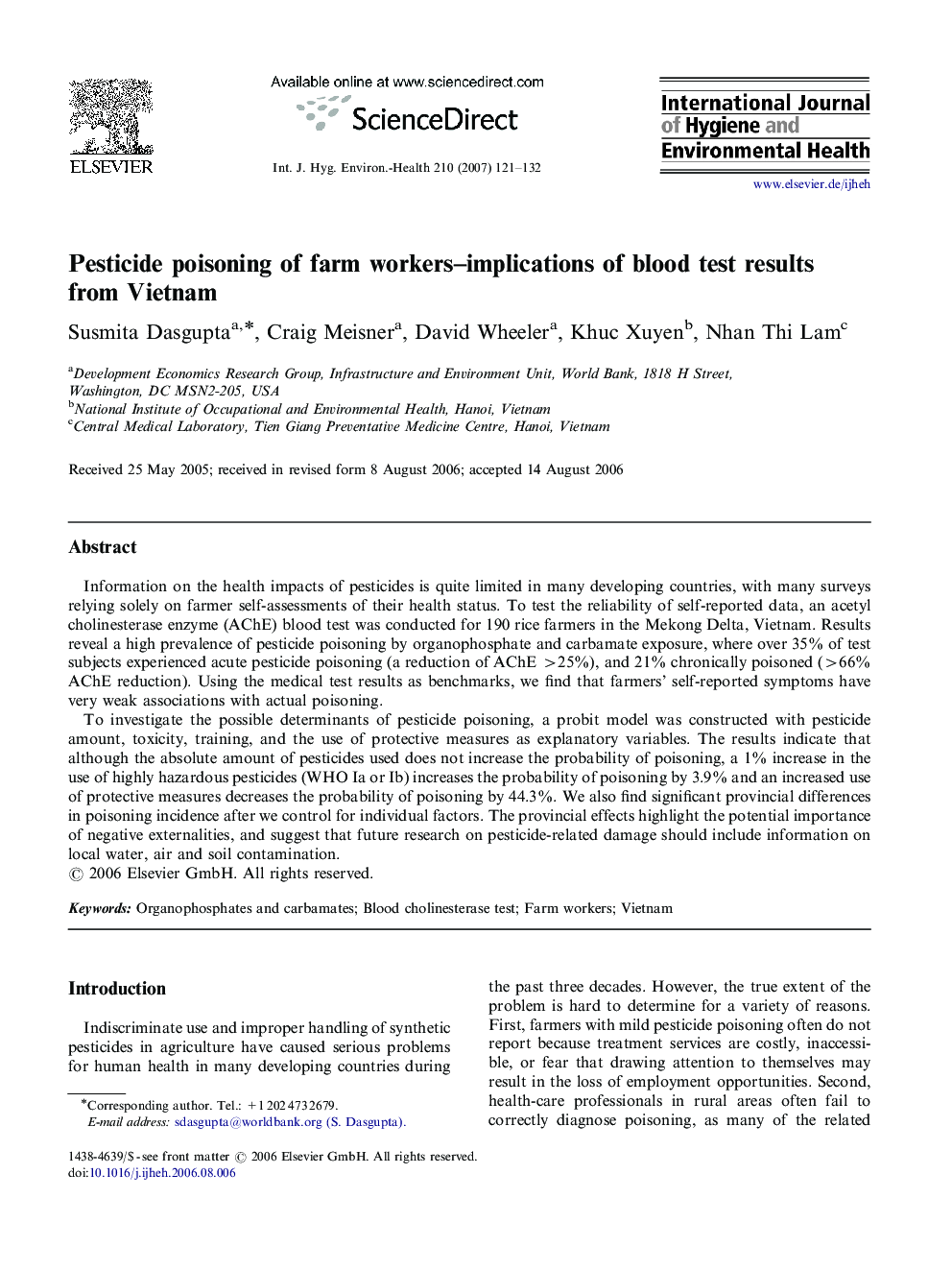| Article ID | Journal | Published Year | Pages | File Type |
|---|---|---|---|---|
| 2588879 | International Journal of Hygiene and Environmental Health | 2007 | 12 Pages |
Information on the health impacts of pesticides is quite limited in many developing countries, with many surveys relying solely on farmer self-assessments of their health status. To test the reliability of self-reported data, an acetyl cholinesterase enzyme (AChE) blood test was conducted for 190 rice farmers in the Mekong Delta, Vietnam. Results reveal a high prevalence of pesticide poisoning by organophosphate and carbamate exposure, where over 35% of test subjects experienced acute pesticide poisoning (a reduction of AChE >25%), and 21% chronically poisoned (>66% AChE reduction). Using the medical test results as benchmarks, we find that farmers’ self-reported symptoms have very weak associations with actual poisoning.To investigate the possible determinants of pesticide poisoning, a probit model was constructed with pesticide amount, toxicity, training, and the use of protective measures as explanatory variables. The results indicate that although the absolute amount of pesticides used does not increase the probability of poisoning, a 1% increase in the use of highly hazardous pesticides (WHO Ia or Ib) increases the probability of poisoning by 3.9% and an increased use of protective measures decreases the probability of poisoning by 44.3%. We also find significant provincial differences in poisoning incidence after we control for individual factors. The provincial effects highlight the potential importance of negative externalities, and suggest that future research on pesticide-related damage should include information on local water, air and soil contamination.
